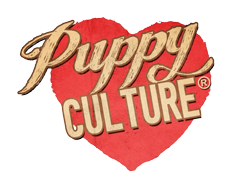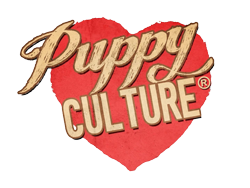Does this sound familiar?
"We did the manding exercises, but my puppies are inconsistent. Sometimes they mand, sometimes they jump up. Why? Am I doing something wrong?"
We get a post similar to this at least once a week, so allow me to offer some clarification and reassurance. Manding is a concept, not a rule. The fact that the puppies do it sometimes and not others is not only permissible, it's completely correct.

Yes, we try to continually reinforce the manding behavior but there is no rule that says the puppy MUST mand before receiving resources. There is only the concept that he MAY access resources by manding. This is a forward communication from the puppy to you, not a top down rule imposed by you on the puppy. That's why we call it "Give Your Puppy A Voice" instead of "Teach Your Puppy Manners." Two completely different things.
Mand vs Automatic Sit

Because the mand typically involves a seated position, people confuse it with "sitting politely for patting" which is a RULE that a puppy will not be given attention until and unless he is sitting. This kind of rule is WAY beyond the scope of a 6 or 8 or even 16 week old puppy to do reliably so you're setting up both yourself and the puppy for failure if you try to enforce rules at this age. To make it worse, your puppy will wind up missing out on important emotional learning while you fuss about "rules."
That's why we call it "Give Your Puppy A Voice" instead of "Teach Your Puppy Manners." Two completely different things.
Practically speaking, yes, try to manage interactions with strangers so that the puppy mands for attention, and try to make sure that strangers do give your puppy attention when the puppy mands, but don't sweat it or push it if the puppy does not choose to mand. Focus on letting the puppy enjoy the interaction with the new person. That's all that really matters for young puppies. The primary goal for young puppies is forming positive emotional connections. Obsessing about rules does not serve this purpose.
Here's one of our puppies, Imogen, around town:
Sure, when she sits to ask for petting I'm proud of her, but it's really her choice.

At this age, she still gets all the love, whether she sits or not.
But can it hurt to start working on some rules now?
Yes, it can hurt and you can get the exact opposite of what you had hoped for. You can (and probably will) wind up with bad behaviors that will be extremely difficult to get rid of.
The primary goal for young puppies is forming positive emotional connections. Obsessing about rules does not serve this purpose.
As I have mentioned many times in the past, when you are dealing with young puppies there will be many times where you have to ignore "rules" because of the inevitable emergency situations that crop up - a puppy that's sick and needs to be picked up, a puppy that's being attacked by other puppies, a puppy that needs to go outside NOW, etc. For this reason, we recommend teaching puppies concepts, not rules, until they are about 5 months old. Only then do we feel that our puppies have the physical and mental wherewithal for us to maintain rules in a consistent fashion.
If you try to impose rules on puppies that are just too young, at best the puppies will form negative feelings about you and interacting with you. At worst, you will run into one of the aforementioned "emergencies" and fail to enforce the rule, which will put the undesirable behaviors on a variable schedule of reinforcement. This will create INCREDIBLY durable "bad" behaviors that will be a bear to train out later. Trust me; you do not want this.
Surprise, You're AWESOME!
So, to every one of you that "failed" to teach your puppies to mand, congratulations, you are a success and you've done a great service to your puppies and their people. If you have ever, even once, seen that little light bulb pop up over a puppy's head and then see his butt hit the ground, feel joy because you have succeeded in teaching him to talk to you. There is plenty of time for rules later.
Photo credits: Cordula Weiss, Down and Back Photography, Rosie Jo Hayward, Louis B. Ruediger, Fiona Powrie.









4 comments
You guys are the coolest! This is the first time I have heard of this “mand” concept and I was really lost at your intro and opening question.
But reading through, I love your explanations to puppy behaviour and how we humans should just simmer down really.
Thanks so much for all your hard work!!
This is such a great explanation of manding. It’s a difficult concept to understand. Also, I really like the time frame for starting rules. This may be the cause of some of my challenges with my dogs in the past.
Although I have followed the Puppy Culture Blogs for some time and have one of the videos this is the first time I have come across mand/manding – could you possibly explain what you mean by it. I can get a general idea from the blog but a definition would be really helpful
Thank you
I love this concept. It’s super helpful to get an idea of what we should expect at different developmental stages and what we should be emphasizing. Thank you!